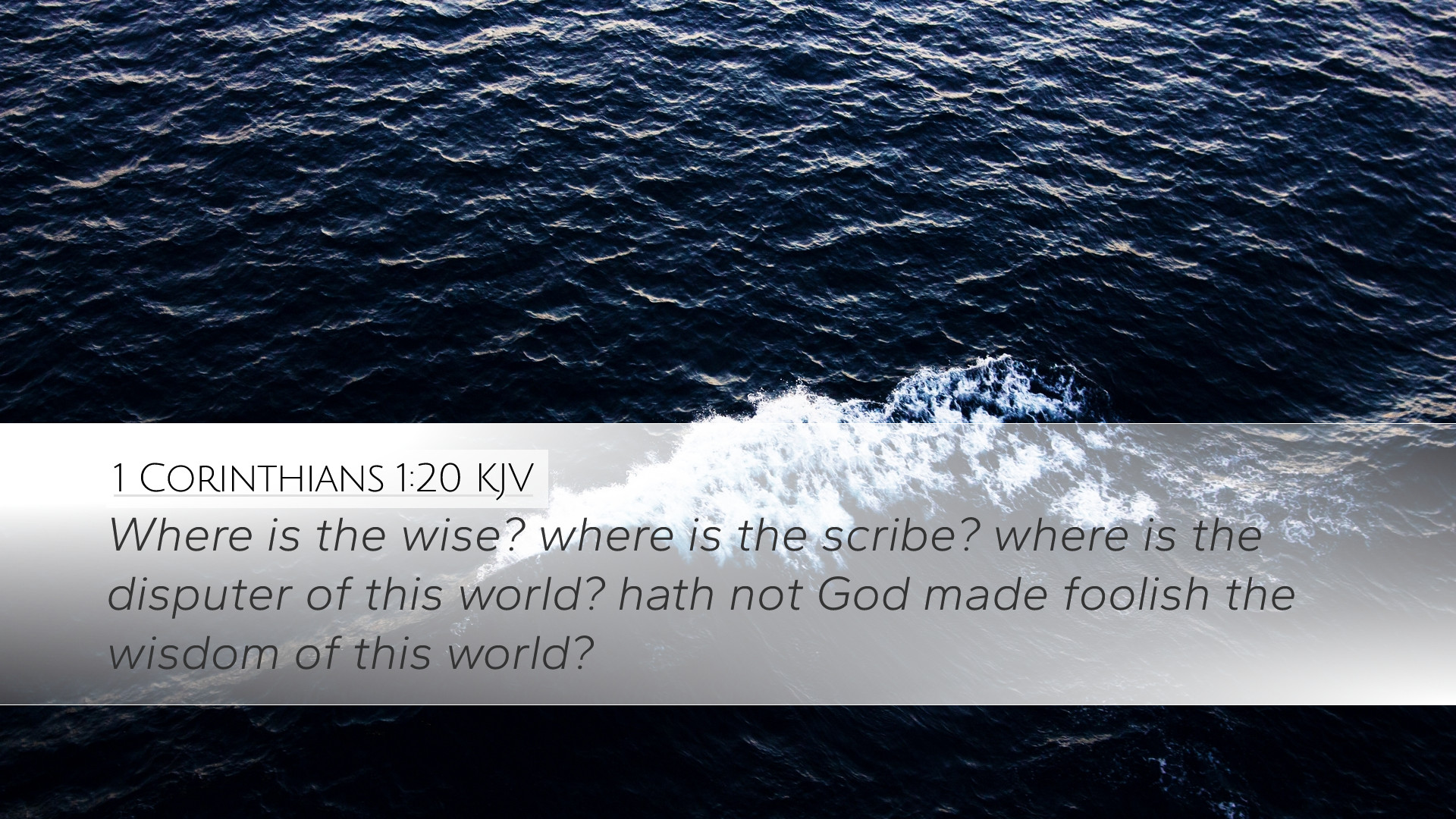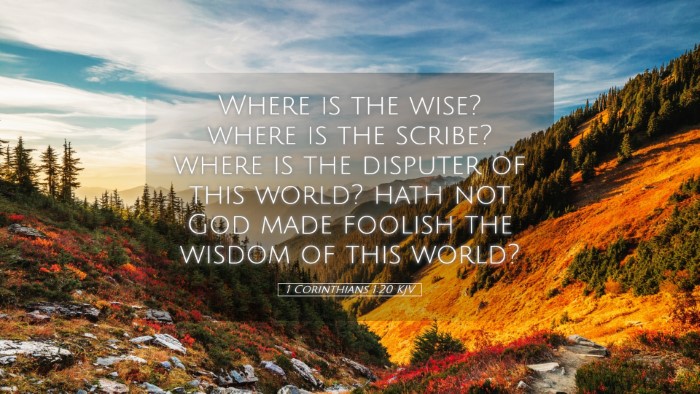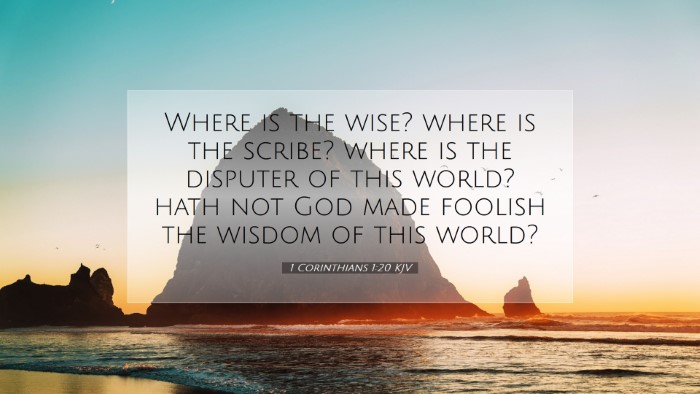Commentary on 1 Corinthians 1:20
Verse Context: 1 Corinthians 1:20 states, “Where is the wise? Where is the scribe? Where is the disputer of this world? Hath not God made foolish the wisdom of this world?” This rhetorical question posed by the Apostle Paul emphasizes the absurdity of worldly wisdom in contrast to divine wisdom.
Understanding the Verse
Matthew Henry's Commentary: Matthew Henry emphasizes that Paul brings attention to the futility of worldly wisdom as he speaks to the Corinthian church. He questions the status of the wise, the scribes, and the disputers of the age, which would have included sophisticated philosophers and learned men of that time. Henry notes that Paul seeks to demonstrate that true wisdom is found in the cross of Christ. The implication is that the intellectual pursuits esteemed in society are rendered insignificant in light of Christ's redemptive work.
Albert Barnes' Notes: Barnes elaborates on the question posed by Paul—where is the wise man? He suggests that Paul is effectively challenging the Corinthians' reliance on human wisdom. He writes that wisdom, as held by the world, is often contrary to the teachings of the Gospel. Barnes points out that in God's economy, the schemes and thoughts of man do not measure up to the divine plan. Through this, Paul highlights that God’s wisdom appears as foolishness to the natural man, yet it is the foundation of true understanding and faith.
Adam Clarke's Commentary: Clarke's approach provides a deeper exploration of the biblical notion of wisdom. He articulates that the apostle brings forth the limitations of human understanding when juxtaposed with the supernatural insight provided through faith. He emphasizes the idea that God has purposefully chosen a means (the preaching of the cross) that seems foolish to humankind to confound the wise. Clarke importantly notes that this is a part of God's overarching plan, serving to show the supremacy of divine wisdom.
Theological Implications
- The Superiority of God's Wisdom: All three commentators agree that God's wisdom is transcendent and far superior to the wisdom of the world. Paul’s assertion serves to remind believers that what might seem foolish to man is, in fact, divine wisdom.
- Valuation of Divine Truth: The question posed implies a call to rethink the values of society regarding knowledge and truth. Pastors and theologians should encourage a valuation of divine and biblical truths over secular wisdom.
- Challenge to Worldly Philosophies: This verse stands as a challenge to integrate faith with knowledge, emphasizing that Christian belief should inform understanding and not the other way around. Such a paradigm shift can enrich theological education.
Practical Applications
For Pastors: This passage can serve as a foundation for sermons emphasizing the need to rely on God’s wisdom in the leadership and guidance of the church. A pastor may illustrate how human wisdom often leads to confusion while the simplicity of the Gospel brings clarity and hope.
For Students and Theologians: Engaging with this verse can spark deeper discussions surrounding the intersections of faith and reason. It invites exploration of how secular philosophies have infiltrated contemporary Christian thought, encouraging a robust defense of the simplicity and profundity of the Gospel.
For Bible Scholars: The verse offers fertile ground for scholarly analysis of early Christian thought in the context of Hellenistic philosophy. It encourages a historical-critical study regarding how first-century Christians navigated their faith amid prevailing cultural ideas.
Conclusion
1 Corinthians 1:20 serves as a powerful reminder of the limitations of human intellect when contrasted with divine wisdom. The insights from public domain commentaries highlight how Paul challenges believers to recognize and embrace the wisdom of God revealed through the Gospel, often perceived as folly by the world. This verse encapsulates a critical theological dimension that is vital for understanding the distinctiveness of Christian faith.


